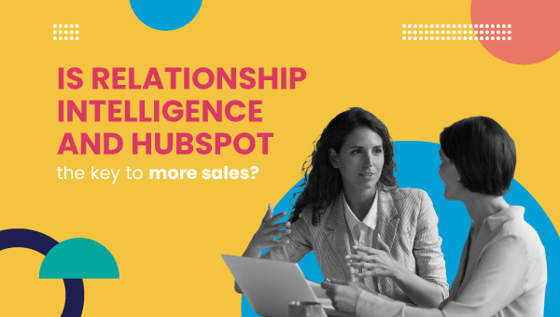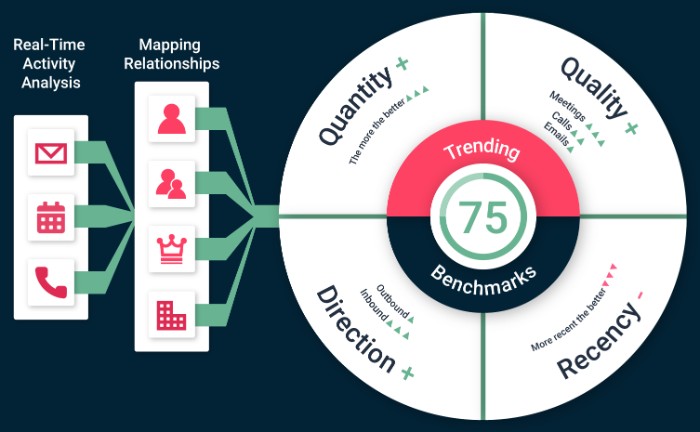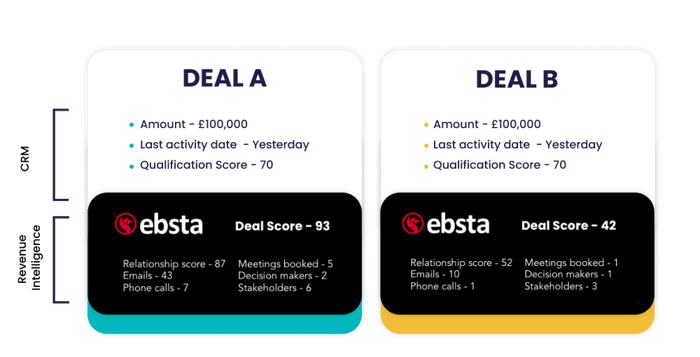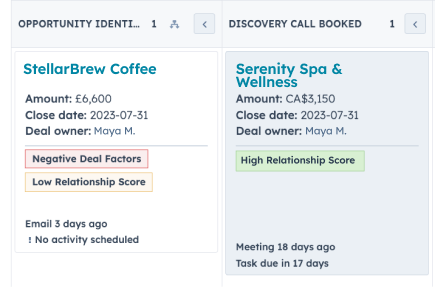


Is Relationship Intelligence and HubSpot the key to more sales?




When it comes to sales processes, there are several essential components that must be taken into consideration. While companies generally focus on sales funnels, marketing strategies, and conversion rates, the quality of relationships built with potential customers can play an even more vital role in driving revenue.
In this blog, we want to show you how you can use relationship intelligence to improve sales velocity.
Relationships are a key sales approach used to improve win rates. Don't believe me? Checkout the B2B Sales Report. Rather than just a simply transactional approach, here, a sales rep is looking to develop trust, create better communication channels, and form meaningful connections to drive sales.
The aim is to understand the customer’s needs better based on their interactions ,so you can tailor your product or service to meet those needs efficiently.
Rather than using using a generic elevator pitch or automated sales outreach, your focus should be on personalisation.
By understanding the customer's current situation and long-term goals, companies can adjust their offering accordingly while also deepening relationships through timely follow ups and resolving any issues quickly.
Relationship Intelligence and Revenue
To understand the impact of relationships on revenue, it is important to take a step back. Every business is made up of people, and each person plays their own unique role in the sales process.
Relationship intelligence allows you to leverage greater personalisation in order to drive greater sales velocity. With the number of stakeholders being involved in sales processes, personalisation needs to be accounted for across each persona.
By identifying the persona of key stakeholders, sales teams can understand which individuals are most influential and target their efforts accordingly. By building and nurturing relationships with these individuals, sales leaders can increase their chances of closing deals faster and more efficiently.
Quantifying Relationships
You might be reading this and thinking, "wow, this looks like hard work."
You're not wrong. But if you are turned away as a result, my bet is that you're missing out on some valuable sales.
According to Ebsta, too few relationships and too little engagement contributed to 71% and 41%, respectively, of deals lost. High performers on the other hand, were 53% more likely to have enough relationships involved in a sales process.
There is a 'sweet' spot the number of relationships a sales team should nurture.
Now, this number varies depending on the deal size, which ebsta reveals in their B2B Sales Benchmarks report
This shows the incredible impact that relationships can have on your sales processes and subsequent revenue.

However, building a strong relationship with potential customers goes beyond just being friendly or likability.
Understanding the unique needs and challenges of each customer is vital. Sales reps that take the time to truly understand their customers' requirements can provide customised solutions that meet their specific needs. This level of attention drives customer loyalty and, ultimately, more significant deals.
Creating a Relationship Score in HubSpot
A HubSpot - Ebsta integration allows you to quantify your relationships in HubSpot. No more fluff or guesswork. Instead, relationships can now become measurable using a relationship score.
There are a number of factors that are accounted for in a relationship score. These factors help you measure the strength of your engagement between 0-100.
Ebsta shares that the Relationship Score is built around a formula based on the following factors:
- Type & Quality of Interaction
- Volume of Interactions
- Direction of Interactions
- Recency of Interactions

This factor can then be used as a HubSpot property which is automatically updated.
Prioritising deals through relationship intelligence
Using relationship intelligence often results in greater win rates in comparison to traditional selling approaches. While it enables your team to spend more time personalising, this can also be a time consuming task. That's why, it should be used to also effectively prioritise.
You can use this relationship score to help prioritise higher-value deals. This in combination with the type of company, technographic data, funding, or recruitment insight can be looked at to understand which signals lead to converting revenue most efficiently.
For example, if you were to look at Deal A and Deal B below, you would see that without Ebsta, both deals look the same on the surface.

But when we peel back the layer and look at relationships as a leading indicators, you see a different picture. It's now easier to understand which relationships to prioritise in order to improve sales velocity.
In order to make prioritisation easier, inside a deal pipeline, you can also tag a deal if it has a high or low relationship score. When your sales team opens their deal pipeline, it would look something like this:

Selling to the right persona at the right time
Sales cycles have increased by 32% last year - an increase likely caused by the more stakeholders entering the sales cycles.
Selling to just one type of person is no longer sufficient. It is necessary to take into account the diverse requirements of various stakeholders, and identify the stage at which they join the buyer's journey.
In many cases, targeting a more junior member earlier in the sales process (e.g., a product manager) can help your sales team gain better visibility & build a more resonant proposal once they reach decision-makers.
By leveraging relationship intelligence, sales teams can not only spend more time personalising their efforts but also prioritise higher-value deals more effectively. The relationship score, combined with other data points like company type, teschnographic information, funding, or recruitment insight, helps identify which signals lead to converting revenue most efficiently.








